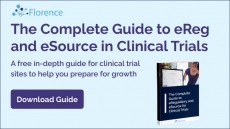High-risk of issues in high-risk device trials, say researchers

Researchers at the UC San Francisco (UCSF) and Yale School of Medicine reviewed clinical trials supporting US Food and Drug Administration (FDA) approval of changes to high-risk medical devices.
According to the study, which was recently published in Journal of the American Medical Association (JAMA), fewer than half of the studies were randomized, blinded, or controlled – failing to meet the so-called "gold standard" for clinical research.
"These findings suggest that the quality of studies and data evaluated to support approval by the FDA of modifications of high-risk devices should be improved," the researchers said.
The researchers examined 83 clinical studies for 78 panel-track supplements approved between 2006 and 2015. According to the report, 45% were randomized clinical trials and 30% were blinded.
A panel-track supplement is submitted “for a change in indication for use or a change to (or removal of) a contraindication of the device,” according to the FDA.
Rita Redberg, MD, MSc, a professor of medicine at UCSF and the study's senior author said there is a lot of pressure on the FDA to move quickly to bring treatments to the market. "But you don't know if they're innovative or life-changing until you've done a careful study. These were short studies, with low-quality data, and little follow-up after approval," she said.
An FDA spokesperson told us the agency is aware of the study and will carefully consider its findings.
Industry response
“The authors highlight an important topic; one that cannot be ignored given it has patient safety at the core,” said Kim Michelson, vice president, clinical operations, clinical trial management at Medpace.
“Device studies do have unique challenges associated with blinding and long-term patient follow-up but there are customized solutions that can be built to address these important design and operational needs,” she told Outsourcing-Pharma.com.
“Rigorous and disciplined planning and execution not only protects patient safety, but it can be leveraged by sponsors for long-term success,” Michelson added.
Source: JAMA
doi:10.1001/jama.2017.9414
Characteristics of Clinical Studies Used for US Food and Drug Administration Approval of High-Risk Medical Device Supplements
Authors: Sarah Y. Zheng, MD1; Sanket S. Dhruva, MD, MHS2,3; Rita F. Redberg, MD, MSc4
















